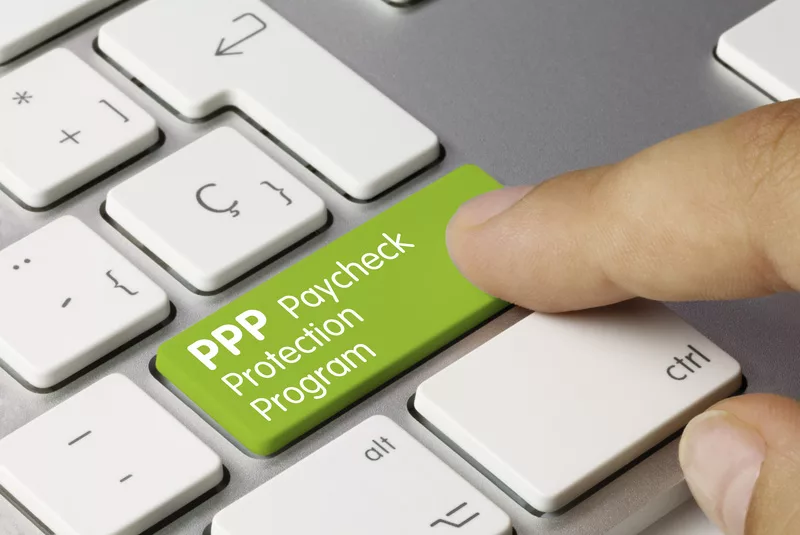The farming community is joining the growing push to change an IRS ruling regarding the deductibility of expenses incurred by business operators using funds from the federal Paycheck Protection Program.
The American Farm Bureau Federation has joined the call for a change to an Internal Revenue Service ruling that would allow farmers to claim a tax deduction for such expenses.
The PPP loan program, created by the Coronavirus Aid, Relief and Economic Security Act and administered by the Small Business Administration, provides incentives for small businesses to keep their workers on the payroll.
American Farm Bureau Federation President Zippy Duvall has urged passage of a PPP technical correction before Congress adjourns to ensure PPP functions as Congress originally intended and farmers aren’t hit with an unexpected tax bill at a time when they continue to struggle with pandemic-induced economic stress. In a letter to Congressional members, Duvall says PPP is providing vital working capital to farmers who are struggling to remain operational due to the impacts of the global COVID-19 pandemic.
Duvall writes, “The resources provided by the program are helping to maintain viability of American agricultural production by providing farmers with funds to assist in paying wages, rent, mortgage interest and utilities.”
The Farm Bureau leader adds, “Unfortunately, rules issued by the Internal Revenue Service threaten to deny farmers a portion of this much-needed financial assistance by declaring that normal and customary business expenses incurred while operating with forgiven PPP loan funds are not tax deductible.”
According to Duvall, The IRS’s decision to disallow the deduction for traditionally normal and customary business expenses is clearly at odds with congressional intent that any forgiven PPP loan amount “shall be excluded from gross income.”
Duvall argues, “When Congress included the program in the CARES Act, it clearly intended that forgiven PPP loans were to be excluded from taxation, yet IRS Notice 2020-32 and Revenue Ruling 2020-27 have the opposite effect by denying farmers the ability to deduct payroll, rent, mortgage interest and utility expenses that were paid for with forgiven PPP loans.”
According to Michigan Farm Bureau National Legislative Counsel John Kran, PPP loans are forgiven if all employees are kept on the payroll, and the money is used for payroll, rent, mortgage interest or utilities.
Kran says, “Since the forgiven PPP loan amount and the number of lost deductions are the same, the net effect is farmers will end up paying income taxes on the forgiven PPP loan,” and adds, “The IRS’s decision to disallow the deduction of what is normal and customary business expenses is clearly at odds with congressional intent that says a forgiven PPP loan amount ‘shall be excluded from gross income,’ meaning not taxed.”
According to Kran, the Democratic and Republican chairmen of the House Ways and Means and Senate Finance committees have issued public statements that the IRS Notice and, more recently, the Revenue Ruling are contrary to congressional intent.
Congressional efforts to reverse the IRS rulings has bipartisan support in both chambers, according to Kran, including SB 3612, the Small Business Expense Protection Act, introduced by Sens. John Cornyn (R-Texas), Chuck Grassley (R-Iowa), Ron Wyden (D-Ore.), Marco Rubio (R-Fla.), and Thomas Carper (D-Del.)
On the House side, Kran says HR 6821, the Small Business Expense Protection Act of 2020, has been introduced by Reps. Holding (R-N.C.), Jackie Walorski (R-Ind.), Drew Ferguson (D-Calif.) Mike Kelly (R- Pa.) and Devin Nunes (R-Calif.).
Looking at the Great Lakes State, Kran says, “From Michigan, Reps. Jack Bergman and Fred Upton are currently listed as co-sponsors, and we anticipate more from Michigan will be coming on board as co-sponsors. This issue really only came to the surface recently once the IRS put out their formal guidance.”
Kran expects renewed interest in a year-end stimulus package looks promising and could also reverse the IRS stance on the PPP taxation ruling, saying, “PPP as a whole has broad, bipartisan support. The hang up on a stimulus package is not about PPP but more about overall funding levels, liability protections and funding for state and local governments. But level of optimism for a stimulus package before Christmas has grown the last few days and the level of urgency about addressing this PPP tax issue before the quarterly tax filing deadline in January definitely helps.”
Stay tuned.






